How to establish continuity between eras – 2
Monarchy in the 21st century: the example of the Kingdom of the Netherlands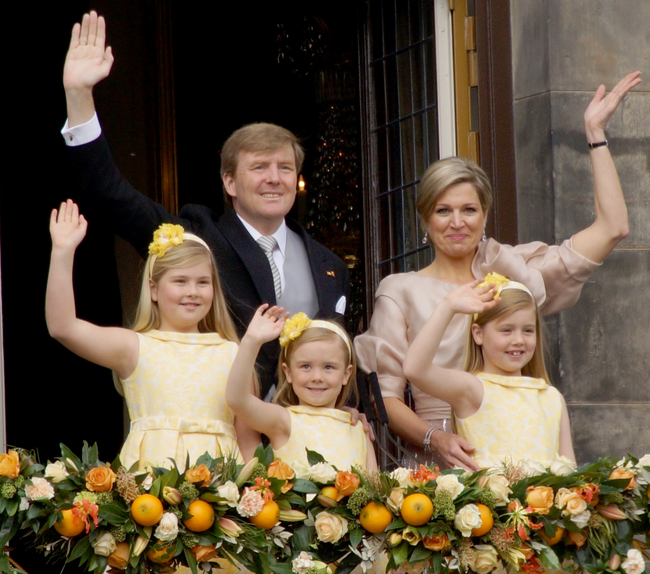
Den/The Day continues the discussion on the efficiency and democratic nature of the institution of monarchy in Europe. We first cited the UK as an example. In the article titled “Monarchistic Idea in the 21th Century,” we noted that “for a great part of Britons, the crown is not just a historical souvenir, but also an institution, quite efficient and necessary in the world of today.” On the other hand, Den’s contributor, philosopher Andrii Baumeister offered arguments about the modernity of monarchy (Den, No. 78-79). In the May 23 issue of The Day (No. 32, 2017, https://day.kyiv.ua/en/article/topic-day/how-establish-continuity-between-eras), we examined the role of monarchy in Denmark, the world’s oldest kingdom. Now we offer our readers a glimpse into the link between the past and the present in the Kingdom of the Netherlands.
ON THE PARTICULARITIES OF DUTCH MONARCHY
The main particularity of monarchy in the Netherlands is that this institution was restored at the request of the Batavian Republic which believed that monarchy would help it consolidate its position and find a way to hold out in the struggle with various foreign enemies.
There was first a monarchy and then a republic in the Netherlands, and finally the people wished to have a monarchy again. In that country, the monarch is considered to be the nation’s arbiter of sorts who ensures stability, although political parties continue to compete.
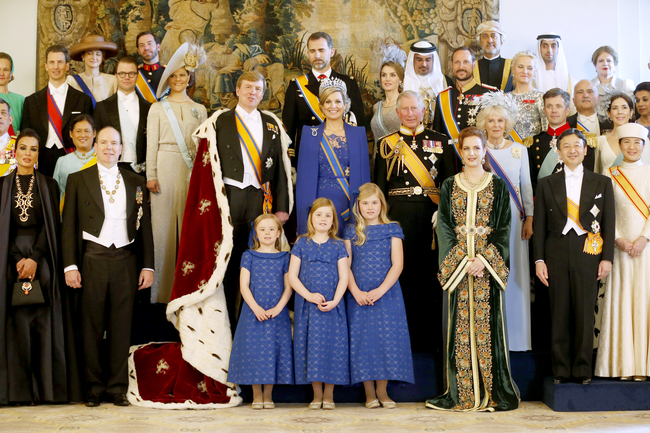
KING WILLEM-ALEXANDER AND QUEEN MAXIMA (PICTURED IN THE CENTER) SURROUNDED BY OTHER MONARCHS AT THE SWEARING-IN AND INVESTITURE CEREMONY ON APRIL 30, 2013 / Photo from the website wikimedia.org
There is a big portrait of an Orange-dynasty king at the Senate, where the Association Agreement was ratified on May 30. Therefore, the Senate passes resolutions as a democratic institution, but the monarch still watches it.
Another particularity of the Dutch monarchy is that it has knitted people together, is progressive, and very democratic. The monarchy is aware of the public attitude to it, and the populace can also see that monarchy is a stabilizing factor in the country.
The Dutch monarchy is also positive in that, in spite of all political contradictions, the head of state is a person who commands respect from the entire population. But it was not always so. This monarchy stirred up scathing criticism when Queen Wilhelmina had to leave the country and moved first to Britain and then to Canada during World War Two. Many took a negative attitude to this.
But she came back after the war and began to make changes in the country, rallying the people together after the Nazi invasion. Wilhelmina became closer to the grassroots, traveling across the country, and thus breathed new life into the institution of monarchy.
“THE MONARCH CANNOT FUNCTION WITHOUT MORALITY”
In the Netherlands, the monarch does not belong to any groups of interests or ideas. He or she is not part of any partnership but stays above everything, says Sybe Schaap, a Dutch politician, a Liberal Party member of the Netherlands parliament, President of the Dutch Association of Water Boards, as well as a philosopher and researcher of the problems of totalitarian and post-totalitarian societies.
In his words, the king is officially the head of state, albeit with limited powers. This is why he takes part in no debates, for he is supposed to be above all this as a wise person and always bring people together, saying: after all, we may be divided, but we are united, Mr. Schaap explained.
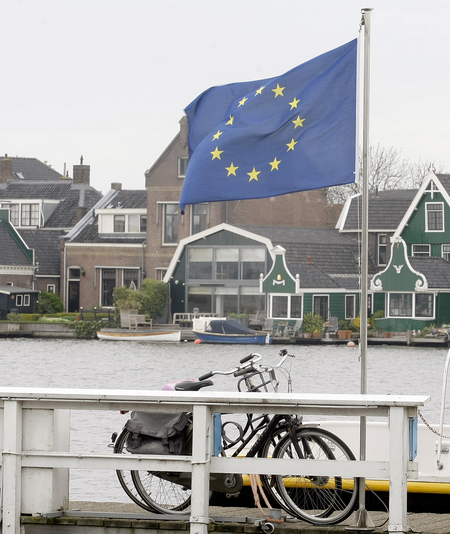
Photos by Mykola TYMCHENKO, The Day
Moreover, the monarch has no levers or mechanisms to rule the country at his disposal, except for his vote, the Dutch politician pointed out. “Naturally, he must demonstrate truthfulness, moral honesty, and be true to facts. And morality is the thing that exists between good and evil. He must also be a kind and wise person – this is what the head of state’s activities must consist in. And the monarch must show all this to people. He must always be above them and unite them,” Mr. Schaap said.
Speaking of differences between the Dutch and, say, the British monarchy, he pointed out: “The monarch plays a symbolic role almost everywhere. But being symbolic is not enough, so the monarch must perform a moral function, which is very important for the head of state. Otherwise, he cannot function, for he wields no real power.”
This often raises the question why certain nations cling to monarchy and do not switch to other, more democratic, forms of government that have emerged in the past few decades, Experts believe that the root cause is a desire to maintain traditions. Monarchy, including that of the Netherlands, is the thing that unites all in the long historical term. In reality, the Dutch reason is as follows: “At this historical stage – monarchy, – we are building our life, looking into the future, and assessing the present.”
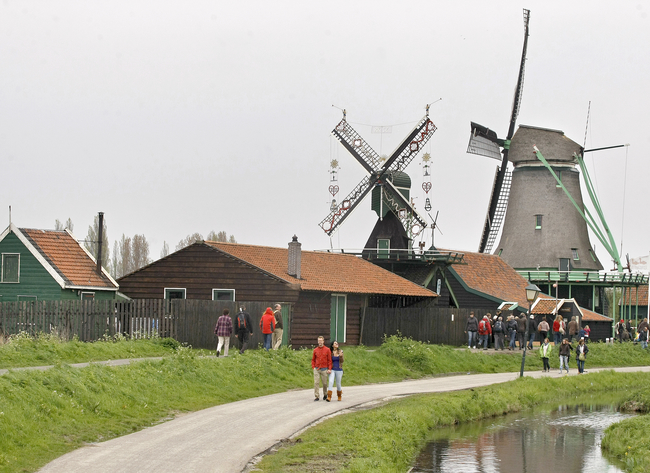
Photos by Mykola TYMCHENKO, The Day
Dutch monarchs are aware of the public attitude to them and take rather a critical view of their own selves. They never take an arrogant attitude to anybody. And the incumbent king will also be just a moment in the historical span, for the next head of state will be a queen.
Incidentally, power was transferred in 2013 by way of investiture, not enthronization. This means that, historically, society has made sort of a deal with the monarchy which is to provide its subjects with proper living standards. As it is a deal between the monarchy and society, each new monarch does not ascend the thrown – one person just replaces another. This deal between society and monarchy is continuous. Monarchs themselves decide which of them will be the head of state. This continuity is based on the deal between society and monarchy.
“MONARCHS SHOULD NOT IRRITATE SOCIETY WITH WEALTH”
Like their British counterparts, Dutch monarchs have several palaces and monuments. If you are fond of monuments, preserve and restore them as much as possible, but the monarchs’ main business is not money as such but its role and functions. They should not irritate society with wealth. Even if they are rich, they should behave modestly, not the way rich people do, Mr. Schaap said.
Experts say that another source of the incomes of Dutch monarchs and their families is shares in the companies referred to as royal. The criterion of the monarch’s morality is his or her attitude to accountability. The king of the Netherlands has had Noordeinde Palace in the downtown Hague renovated and then arranged open days. For five days in a row, anybody could come and see what the money was spent on and what the result was. The royal family thus showed that the money had not gone down the drain. Eyewitnesses say that there is no luxury but, at the same time, everything looks refined at the place where the king works.
THE KING AS PERFECTIONIST AND PILOT
Since 2013, Willem-Alexander, the first child of Princess Beatrix and Prince Claus, has been the King of the Netherlands. After his mother Beatrix had sworn the royal oath on April 30, 1980, he was granted the title of Prince of Orange.
Mr. Schaap says he knows the king very well. When he was the crown prince, he decided to manage water resources. “I was president of the Dutch Association of Water Boards, and we met many times in the Netherlands to discuss some of the major projects, and we also visited other parts of the world together. We helped each other – I as a professional in this field, and he as a prince and a professional in his sphere. He did a very good job at the time and was a superb perfectionist. Using his powers, Willem-Alexander helped put water management onto the international arena. I highly appreciate him and was glad that he became the king, but, as a water resources manager, I must say it was a bad day for us, for we lost him,” the Dutch politician said.
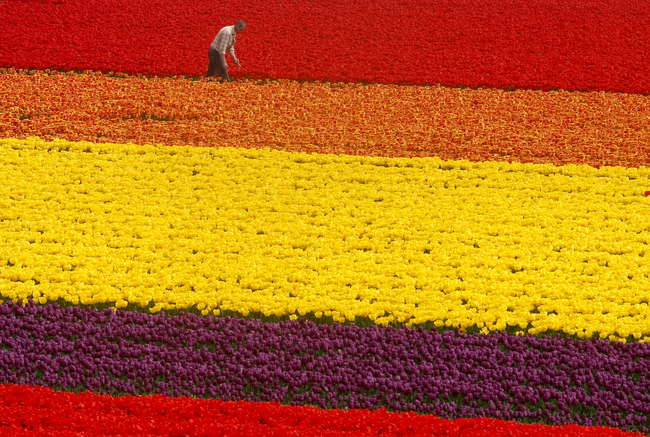
THE ROYAL PARK OF TULIPS, KNOWN AS GARDEN OF EUROPE, BICYCLES, AND WINDMILLS ARE THE EASILY-RECOGNIZED SYMBOLS OF HOLLAND / Photos by Mykola TYMCHENKO, The Day
Besides, King Willem-Alexander is a professional pilot who flies the Amsterdam-London route. When Ukraine’s President Petro Poroshenko was visiting the Netherlands in 2015, the king offered to accompany him as a pilot on the flight to London.
He is an efficient and very well-educated person who has a real profession – like the British princes who are pilots. This lets them feel themselves full-fledged monarchs. The latest polls show that confidence in King Willem-Alexander is on the rise. The Dutch, who loved Beatrix very much, are now taking a more cordial attitude to him, and subordinates respect him more and more.
“WILLEM-ALEXANDER IS TRYING TO BE A PROACTIVE MONARCH”
The king of the Netherlands wants to play a greater role on the international arena. He is the first Dutch monarch to have spoken at the UN General Assembly in 2015. While the monarchy used to be representative, Willem-Alexander is trying to be a proactive monarch, which the people see and appreciate.
King Willem-Alexander radically simplifies protocol speeches and said that if protocol hindered him from doing what he wants, he would throw it away in order to be competitive.
This is why he is very popular now, as is his Argentine-born wife. Incidentally, Queen Maxima came to watch the gymnastics competition at the 2016 Olympics in Rio de Janeiro, wearing a Ukrainian Vita Kin embroidered dress. She chose a white midi-dress with balloon-sleeves. The attire is adorned with a VYSHYVANKA BY VITA KIN brand blue ornament. The queen also selected the accessories that go with the dress: a navy-blue leather handbag, an orange scarf, and ball-shaped earrings.
“THE CONSTITUTION MUST ALSO ENSHRINE MORAL INTEGRITY”
The Day also asked the Dutch politician if it is worthwhile for other countries to institute monarchy as a constitutional system of government. Here is what he answered: “Ukraine has no tradition of monarchy. There used to be a tsar, but it was a very long time ago. And if you have no real traditions of monarchy or they are defunct, it is better not to start with monarchy. After what Franco had done in Spain, this idea was fresh at the time, and there was a living monarch – so this tradition could be revived. But, naturally, it is up to you to decide. The best thing you can do is to draw up a constitution that will really work. And this constitution must also enshrine moral integrity in order to build an integral society, not just that of Western or Eastern Ukraine.”
Newspaper output №:
№36, (2017)Section
Close up





